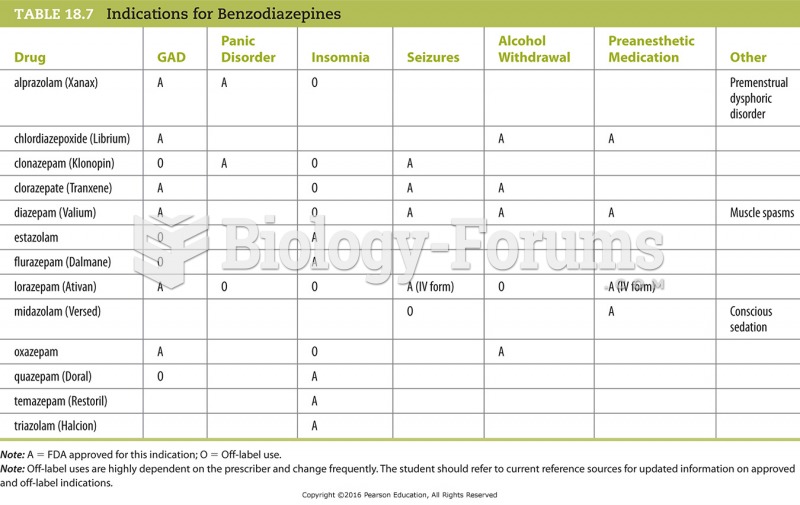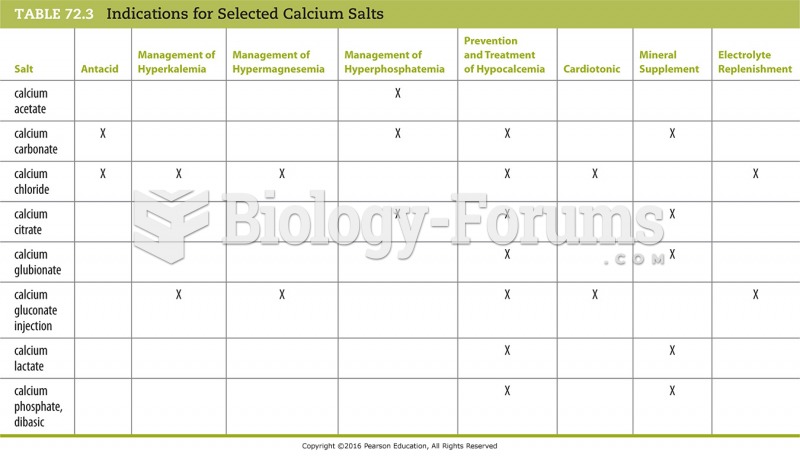|
|
|
About 60% of newborn infants in the United States are jaundiced; that is, they look yellow. Kernicterus is a form of brain damage caused by excessive jaundice. When babies begin to be affected by excessive jaundice and begin to have brain damage, they become excessively lethargic.
The calories found in one piece of cherry cheesecake could light a 60-watt light bulb for 1.5 hours.
More than one-third of adult Americans are obese. Diseases that kill the largest number of people annually, such as heart disease, cancer, diabetes, stroke, and hypertension, can be attributed to diet.
Prostaglandins were first isolated from human semen in Sweden in the 1930s. They were so named because the researcher thought that they came from the prostate gland. In fact, prostaglandins exist and are synthesized in almost every cell of the body.
A strange skin disease referred to as Morgellons has occurred in the southern United States and in California. Symptoms include slowly healing sores, joint pain, persistent fatigue, and a sensation of things crawling through the skin. Another symptom is strange-looking, threadlike extrusions coming out of the skin.
 According to this Democratic cartoon, the only qualification of General Zachary Taylor, the Whig can
According to this Democratic cartoon, the only qualification of General Zachary Taylor, the Whig can
 Young Bill Clinton (left) shakes hands with President John F. Kennedy. “The torch has been passed ...
Young Bill Clinton (left) shakes hands with President John F. Kennedy. “The torch has been passed ...





